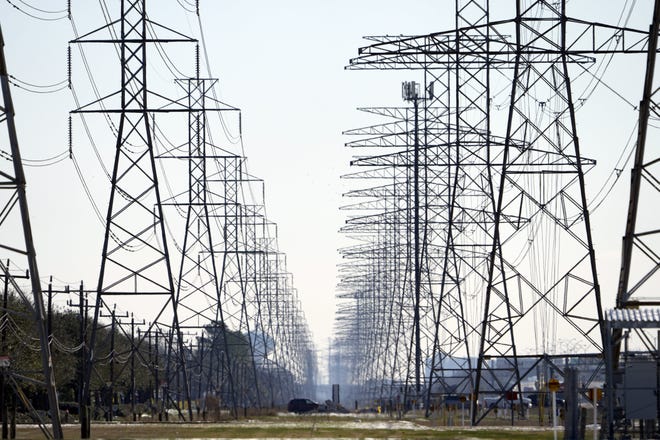Courtesy of Bastrop Advertiser
July 15, 2021
By Bill McCann
Following the February deep freeze that nearly collapsed the Texas power grid, state Republican leaders promised to fix the grid’s problems fast. As it turns out, the fixes were half-fast.
When the freeze hit, Gov. Greg Abbott wrongly singled out frozen wind and solar generators for blame. However, the near-collapse was due mainly to freeze-related failures at natural gas, coal and nuclear plants and associated fuel equipment. It left millions of Texans without power, caused billions of dollars in damages, and more than 100 deaths. It’s no surprise, by the way, that Abbott went easy on natural gas. The oil and gas industry represents his biggest political contributor, according to the Associated Press.

Abbott promised to make the power grid a priority for the Republican-dominated Legislature, which had failed to heed past warnings. When he signed two bills into law in June, Abbott bragged that they contained “everything that needed to be done” to fix the Texas power grid. He was wrong again. It was a missed opportunity that showed itself days later when the state power operator, the Electric Reliability Council of Texas (ERCOT), urged Texans to conserve energy that week, well before the peak summer heat, after numerous power generators had surprise shutdowns.
The bills were a step forward but fell short of what is needed to assure reliability of the state’s power grid, according to numerous energy experts and even some Republican legislators. Despite calls for Abbott to include reliability of the electric grid in the legislature’s current special session, he decided the session would be limited to suppressing voting rights, women’s rights, public health, etc.
While the new grid legislation includes requiring owners to weatherize power plants and associated natural gas facilities, it is rife with loopholes and vagueness. Success will depend largely on rules developed by two state agencies, the Public Utility Commission of Texas and the Texas Railroad Commission. Particularly under Republican rule, these agencies have not been aggressive regulators, to put it mildly. That’s been especially true for the three-member Railroad Commission. Unlike public utility commissioners who are appointed by the governor, railroad commissioners are elected. They typically have relied largely on donations from the energy industry to help get elected. Coziness with industry does not offer much confidence that the commission will put consumers first.
Oil and gas producers have such a tight grip on the railroad commission that the industry and its legislative allies have successfully undermined numerous attempts to change the commission’s name to clarify that it regulates oil and gas. The commission has not regulated railroads for many years. But retaining the harmless-sounding name keeps it from the public spotlight – even if it confuses the public.
Where else does the grid legislation fall short? For one thing, it is silent on taking steps to tie the Texas grid to the national system to provide emergency power when needed. Most of Texas has had its own grid for nearly a century, fearing federal regulation of electricity sales if Texas joined the national grid system.
The legislation also fails to address such things as energy efficiency, including upgrading standards to reduce energy use in homes and businesses. Energy-saving buildings and technologies not only reduce demand for power during weather extremes, they temper the need for new climate-changing fossil-fueled power plants, and also reduce consumer utility bills.
Meanwhile, the new legislation allows utilities to pass along to consumers costs the utilities incurred during the February freeze. It does not offer financial aid to consumers who suffered damage, however. Under the bailout, consumers will pay higher electric bills totaling billions of dollars over two decades. You won’t hear Gov. Abbott bragging about that slice of Republican-style socialism.
McCann is a contributing columnist for the Advertiser. He is a retired journalist and may be reached at [email protected].




